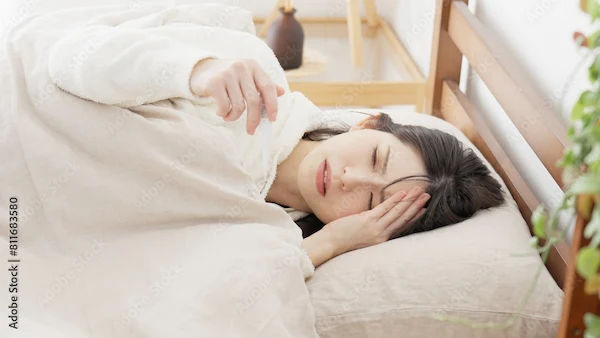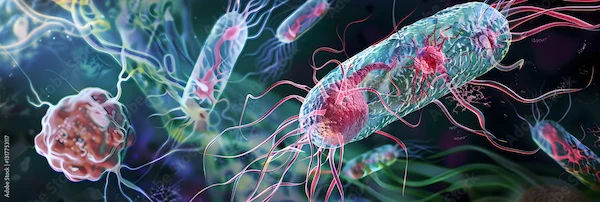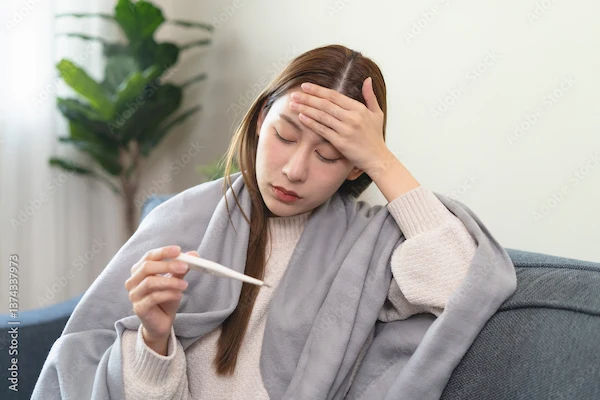Causes and Treatment of Chills
Understand the common causes of chills, including infections and other medical conditions. Learn about effective treatment options, home remedies, and when to consult a healthcare professional.

Written by Dr. Vasanthasree Nair
Reviewed by Dr. D Bhanu Prakash MBBS, AFIH, Advanced certificate in critical care medicine, Fellowship in critical care medicine
Last updated on 20th Aug, 2025

Chills are a common experience where you suddenly feel cold, shiver, or even have goosebumps despite the surrounding temperature being normal. They often accompany fever but can also occur without one. While chills themselves are not a disease, they are usually a sign that your body is responding to an infection, illness, or other underlying condition.
If you or a loved one frequently experience chills, it’s important to understand what might be causing them and how to manage them effectively.
What Causes Chills?
Chills occur when your muscles rapidly contract and relax to generate heat, often in response to a sudden drop in body temperature. Some common causes include:
1. Infections (Most Common Cause)
Viral Infections: Flu, common cold, COVID-19, and other viral illnesses often trigger chills along with fever.
Bacterial Infections: Urinary tract infections (UTIs), pneumonia, strep throat, and sepsis can cause severe chills.
Malaria & Other Parasitic Infections: These infections often lead to recurring fever and chills.
2. Hypothermia (Extreme Cold Exposure)
Prolonged exposure to cold weather or cold water can cause your body temperature to drop dangerously low, leading to intense shivering and chills.
3. Low Blood Sugar (Hypoglycemia)
People with diabetes may experience chills, sweating, and dizziness when their blood sugar levels drop too low.
4. Anaemia (Low Red Blood Cells)
A lack of healthy red blood cells can reduce oxygen supply in the body, leading to fatigue, weakness, and chills.
Consult Top Specialists
5. Side Effects of Medications
Certain antibiotics, blood pressure medications, or anaesthesia can cause chills as a side effect.
6. Autoimmune & Chronic Conditions
Thyroid Disorders: An underactive thyroid (hypothyroidism) can make you feel cold frequently.
Rheumatoid Arthritis & Lupus: These autoimmune diseases may cause fever-like symptoms, including chills.
7. Anxiety & Stress
Strong emotional stress or panic attacks can sometimes trigger chills due to the body’s "fight or flight" response.
When Should You See a Doctor?
While occasional chills are usually harmless, you should seek medical attention if:
Chills are accompanied by a high fever (above 103°F or 39.4°C).
You experience confusion, difficulty breathing, or severe pain.
Chills persist for more than 24-48 hours without improvement.
You have recurrent chills without an obvious cause.
If you're unsure about your symptoms, you can consult a doctor online via Apollo 24|7 for quick medical advice.
How Are Chills Treated?
The treatment depends on the underlying cause. Here are some general approaches:
1. Home Remedies for Mild Chills
Stay Warm: Use blankets, warm clothing, or a heating pad.
Hydrate Well: Drink warm fluids like herbal tea, broth, or warm water.
Rest: Allow your body to recover by getting enough sleep.
Over-the-Counter Medications: If fever is present, acetaminophen (Paracetamol) or ibuprofen can help.
2. Medical Treatments
Antibiotics: If a bacterial infection is the cause, your doctor may prescribe antibiotics.
Antiviral Medications: For severe viral infections like flu or COVID-19.
Blood Sugar Management: Diabetics may need glucose tablets or insulin adjustments.
Thyroid Medication: If hypothyroidism is the cause, hormone therapy can help.
3. Lifestyle Changes to Prevent Chills
Boost Immunity: Eat a balanced diet rich in vitamins (especially Vitamin C and D).
Manage Stress: Practice relaxation techniques like deep breathing or yoga.
Dress Appropriately: Layer clothing in cold weather to avoid sudden temperature drops.
Conclusion
Chills are usually a temporary response to infections, cold exposure, or other health conditions. While most cases can be managed at home, persistent or severe chills should not be ignored. If you're concerned about recurring chills or other symptoms, consult a doctor via Apollo 24|7 for a proper diagnosis and treatment plan.
Consult Top Specialists
Consult Top Specialists

Dr. Swathi Reddy Perugu
General Physician/ Internal Medicine Specialist
7 Years • MBBS, MD (General Medicine)
Hyderabad
Health plus, Hyderabad

Dr. Ashok M L
General Physician/ Internal Medicine Specialist
24 Years • MD Med.
Bengaluru
Apollo Hospitals Jayanagar, Bengaluru
(50+ Patients)

Dr. Rajib Ghose
General Physician/ Internal Medicine Specialist
26 Years • MBBS
Kolkata
B Ghose Foundation Doctor's Chamber, Kolkata
(25+ Patients)

Dr. Chethan T L
General Physician/ Internal Medicine Specialist
5 Years • MBBS, MD, DNB (General Medicine)
Bengaluru
Apollo Medical Center, Marathahalli, Bengaluru

Dr. Rajib Ghose
General Practitioner
25 Years • MBBS
East Midnapore
VIVEKANANDA SEBA SADAN, East Midnapore



